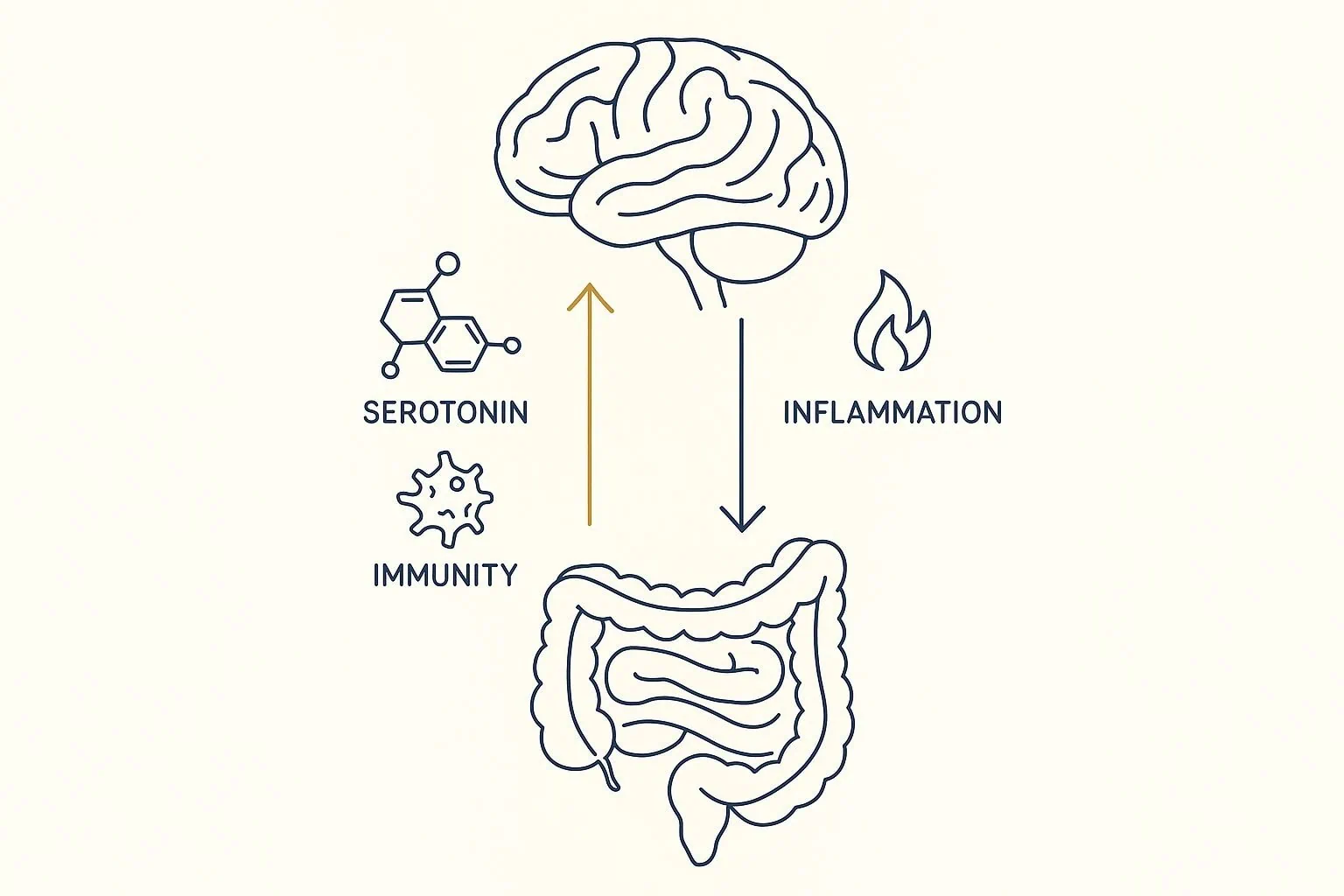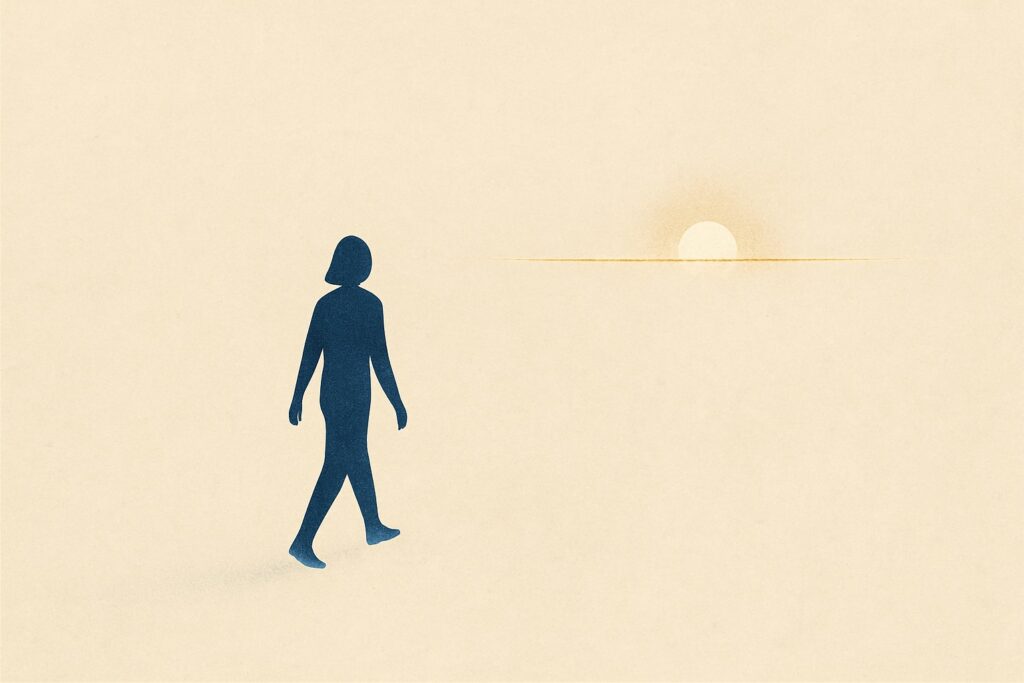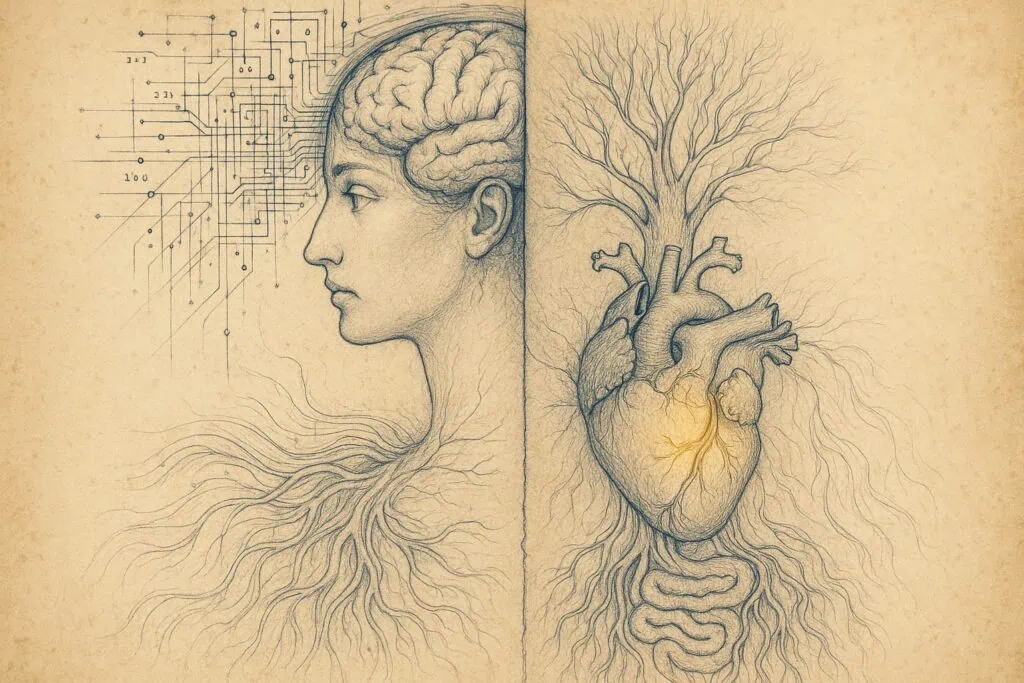The Quiet Exhaustion of ‘Optimal Living’
You’re deeply committed to your health. You seek genuine vitality, not fleeting trends. But as you look around and see the relentless pursuit of “optimization,” does it feel less like a path to well-being and more like a treadmill you can’t step off?
Perhaps you’ve felt the quiet exhaustion of “wellness burnout,” the subtle guilt of not “doing enough,” or the pressure to track every metric, every bite, every hour of sleep.
You’re not alone. In a world obsessed with bio-hacks and longevity metrics, a significant and growing number of intelligent individuals are voicing a shared fatigue. They’re asking for a “saner way” to approach health – a path that honors the human experience, not just the data points. Ultimately, true well-being may not be found in a relentless race against time, but cultivated through a balanced, joyful partnership with one’s own biology and instinctual wisdom.
Uncover Advanced Protocols and Launch Access.
For those who champion evidence over hype.
Beyond the Data: Reclaiming the Human in Health
The modern wellness landscape often presents itself as a frontier of ultimate control. With cutting-edge science, wearable tech, and a dizzying array of “hacks,” the promise is clear: optimize every biological function, extend every healthy year, and defy the natural course of aging. There’s an undeniable allure to this vision, offering a sense of mastery over our own biology. It speaks to our innate desire for health, energy, and a long, vibrant life.
The Hidden Cost: Perfectionism, Guilt, and the Loss of Joy.
Yet, this relentless pursuit of “peak performance” often comes at a hidden cost. For many, the drive to optimize everything transforms wellness from a source of vitality into a source of anxiety. We’ve seen the sentiment: “It sounds exhausting to optimize everything… it sucks out any joy out of living.” The constant pressure to be “100% on,” to track every calorie, every sleep cycle, every biomarker, can lead to a form of orthorexia – an obsession with “righteous eating” or living that paradoxically undermines mental and emotional well-being.
It can drain the soul from self-care when we reduce the magnificent complexity of human biology to nothing more than inputs and outputs — forgetting that data should serve the human, not define them. The drive to engineer a flawless future doesn’t fail because science is flawed, but because we’ve lost sight of its purpose: to enhance life, not override it.

Cultivating Your Inner Strength: Wisdom from Alan Watts & The Power of Now
The most complex and synchronized processes that no amount of book learning or technical skill can produce are being performed within you without conscious thought—from blood circulation and breathing to food digestion and resisting disease.
In our modern world, we’ve often been “taught to neglect, despise, and violate our bodies, and to put all faith in our brains.” This profound observation from Alan Watts in his seminal work, The Wisdom of Insecurity, published in the mid-20th century, was remarkably ahead of its time, yet profoundly timely to reflect on now. It speaks directly to the heart of optimization fatigue. Watts critiques what he calls the “brainy economy”—a civilization driven by the brain’s insatiable desire to “fix” life, to “control” what is inherently fluid, and to guarantee happiness in an indefinitely long future. This echoes the very promises of “everlasting life” and “numerical optimization” often touted by those at the forefront of the extreme longevity movement.
Breaking the Cycle: The Futility of Future-Chasing Optimization.
Watts further argues that this pursuit of future control leads to an “urban mental slavery to clocks” and the illusion of time. What was invented as a useful tool for coordination has morphed into a relentless driver, compelling us to synchronize every part of our biological rhythms and igniting an insatiable drive to foresee and plan the future, fueled by the primal fear of death.
Watts vividly describes the trap of this relentless pursuit:
“But the future is still not here, and cannot become a part of experienced reality until it is present. Since what we know of the future is made up of purely abstract and logical elements—inferences, guesses, deductions—it cannot be eaten, felt, smelled, seen, heard, or otherwise enjoyed. To pursue it is to pursue a constantly retreating phantom, and the faster you chase it, the faster it runs ahead. This is why all the affairs of civilization are rushed, why hardly anyone enjoys what he has, and is forever seeking more and more.”
In the book The Order of Time, Carlo Rovelli provides a scientific explanation for why time, as we commonly experience it, may be an illusion. He describes it as a construct of the human mind, shaped by our limited ability to observe and process the universe in its entirety. Rovelli’s perspective echoes longstanding philosophical arguments that time is not fundamental, but an artifact of perception rather than a concrete feature of reality. In other words, what we think of as ‘time pressure’ may be less about reality and more about perception. If time is not truly fundamental, then the pressure to beat it—or to ‘stay ahead’—is a mental illusion. Recognizing this isn’t just intellectually freeing; it’s a quiet, grounding liberation from the myth of being behind. It’s a further invitation to break away from a “time-driven,” “year-counting,” “longevity-obsessed” mindset.
Reclaiming the Power of Now: Reconnecting Mind and Body.
To break this self-defeating cycle of perpetual dissatisfaction and the brain’s tendency to drive us towards an elusive future, we must learn to reintegrate mind and body, allowing consciousness to “assume its proper behavior.” Watts argues that true wisdom lies in the body’s unconscious “know-how”.
As Watts powerfully states:
“The brain can only assume its proper behavior when consciousness is doing what it is designed for: not writhing and whirling to get out of present experience, but being effortlessly aware of it.”
This perspective invites us to cultivate a profound presence. It’s about trusting our internal rhythms, listening to the body’s signals, and allowing the brain to serve the richness of the present moment, rather than driving us towards a future that never fully materializes as experienced reality. By reconnecting mind and body in the now, we reclaim our inherent human value beyond what can be measured or optimized, finding genuine flourishing in the effortless awareness of life unfolding.
The Gut-Brain-Axis: The Scientific Nexus of Mind-Body Harmony.
This profound understanding is grounded in the well-established science of the gut-brain-axis. This intricate, bidirectional communication system between your digestive tract and your brain is a crucial nexus where mental state profoundly impacts physical well-being, and vice-versa. For instance, the gut is home to approximately 95% of the body’s serotonin, a key neurotransmitter influencing mood, sleep, and appetite. [Mawe & Hoffman, 2013] This dynamic interplay serves as scientific proof that balancing mind and body is essential for true thriving.
When the brain operates under the chronic stress and anxiety of relentless over-calculation and the drive to optimize, this very state can profoundly disrupt the delicate balance of this vital axis. The state of your head—your mental clarity and mindset—can influence both your physical and emotional well-being, further impacting this balance. Such disruption manifests as imbalances directly affecting serotonin production, immune function, and inflammation – all foundational to healthy aging.
Conversely, “tuning in” and “being here now”—the philosophical imperative to cultivate presence and listen to your body’s innate wisdom—directly nurtures this bidirectional communication. This isn’t just a spiritual concept; it’s a biological necessity. A balanced mind fosters a healthy gut, and in turn, a thriving gut supports mental well-being. This is the beautiful full circle where the art of living, rooted in presence and listening to the body, meets scientific reality, fostering profound vitality and authentic well-being.

Beyond the ‘How Long’: Embracing the ‘How Well’ of Healthy Aging
We believe in a different path: Nurture Aging. This isn’t about fighting against time or chasing an elusive immortality. It’s about a profound shift in perspective, focusing on the quality of life – how well you live each day, how vibrant you feel, and how gracefully you embrace every stage of your journey. We champion the idea of adding life to years, not just years to life. This philosophy allows for a balanced, humanistic approach to vitality, where science is a tool to enhance life, not to control it. We seek authentic thriving through balance, living long by living well, not by living in a lab.

From Philosophy to Practice: Judging Your Own Thriving
While health gadgets and data-driven protocols can serve as useful tools, especially with the growing aspiration for personalized health and nutrition, they must be, first and foremost, genuinely valuable rather than a gimmick. More importantly, they must be integrated with the profound wisdom of your own body. Otherwise, they can counteract the very purpose they aim to serve in your well-being journey to a full life. True thriving isn’t always quantifiable on a spreadsheet; it’s felt in sustained energy, mental clarity, emotional resilience, restful sleep, and a profound sense of inner well-being. Empower yourself to observe these qualitative markers of health. Trust your intuition, guided by intelligent understanding—and let that trust empower you to live with presence, vitality, and self-respect, on your own terms.



